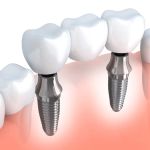Understanding the Cause of Toothache from a Cavity
As someone who’s experienced a toothache from a cavity, I can tell you how incredibly uncomfortable it can be. A toothache occurs when the inner layer of your tooth, known as the pulp, becomes inflamed or infected, usually due to a cavity. Cavities are essentially holes that form in your teeth due to the buildup of plaque and bacteria. The tooth pulp contains nerves, blood vessels, and connective tissue, and when it's exposed to bacteria, the result is severe pain.
What Happens When You Have a Cavity?
The first sign of a cavity is often a slight discomfort or sensitivity when eating sweet, hot, or cold foods. However, if left untreated, the cavity can deepen, and the pain becomes more persistent. Eventually, the infection may spread, causing the tooth pulp to swell and put pressure on the nerves, resulting in an intense toothache. Sometimes, it may even feel like the pain radiates to your jaw, ear, or even head.
Immediate Remedies to Relieve a Toothache from a Cavity
If you are in pain and can't get to a dentist right away, there are several remedies you can try to alleviate the discomfort temporarily. Keep in mind that these methods are not a permanent solution, and you should still visit a dentist as soon as possible for proper treatment.
1. Over-the-Counter Pain Relievers
One of the easiest ways to ease the pain is by taking over-the-counter painkillers like ibuprofen (Advil) or acetaminophen (Tylenol). These medications can help reduce inflammation and pain, making it more bearable until you get professional help.
2. Saltwater Rinse
Gargling with a warm saltwater solution can help reduce swelling and cleanse the affected area. Salt has natural antiseptic properties that can aid in cleaning out bacteria from the cavity, while the warm water soothes the pain.
3. Cold Compress
Applying a cold compress or ice pack to the outside of your cheek near the painful area can help numb the area and reduce swelling. Make sure to wrap the ice in a cloth to avoid direct contact with your skin, which could cause frostbite.
4. Clove Oil
Clove oil has been used for centuries to alleviate dental pain due to its natural numbing properties. You can apply a small amount of clove oil to a cotton ball and gently press it against the painful area. It may help reduce pain and inflammation temporarily.
5. Avoid Trigger Foods
Until you can see a dentist, try to avoid foods and drinks that trigger the pain, such as very hot or cold items, sugary snacks, and acidic beverages like citrus juices. Stick to soft, room-temperature foods that won’t irritate the cavity.
When Should You See a Dentist?
While these remedies can help relieve the pain temporarily, it’s important to see a dentist as soon as possible for a permanent solution. If the cavity is causing severe pain or if you notice swelling in your gums, it’s a sign that the infection might have spread, and you need professional treatment immediately.
What Can a Dentist Do for a Cavity?
A dentist will examine the tooth to assess the extent of the cavity and may take X-rays to check for deeper damage. In most cases, they will clean the cavity and fill it with a material to restore the tooth’s structure. If the decay has reached the pulp, you may require a root canal to remove the infected tissue.
Prevention is Key: How to Avoid Toothaches from Cavities
While toothaches can be unavoidable at times, the best way to prevent cavities from forming is through regular dental care. Brushing your teeth twice a day with fluoride toothpaste, flossing daily, and using mouthwash can significantly reduce the risk of plaque buildup. Additionally, visiting your dentist for regular check-ups and cleanings ensures that any cavities are caught early before they become a serious problem.
Healthy Eating Habits for Better Oral Health
A well-balanced diet also plays a key role in preventing cavities. Limiting sugary foods and beverages, which contribute to plaque formation, can help keep your teeth healthy. Drinking plenty of water and eating foods high in fiber, such as fruits and vegetables, can help neutralize acids in your mouth and promote better dental health.
In conclusion, while a toothache from a cavity can be extremely painful, there are steps you can take to manage the pain until you can see a dentist. By following proper oral hygiene practices and seeing a dentist regularly, you can reduce your risk of cavities and avoid future dental pain. If you need additional oral care products or services, be sure to visit Dentistry Toothtruth for personalized recommendations and expert advice.







 Perry L Jeffries DDS and Associates PA - Raleigh2.0 (53 review)
Perry L Jeffries DDS and Associates PA - Raleigh2.0 (53 review) Almond Dental Maple Grove4.0 (413 review)
Almond Dental Maple Grove4.0 (413 review) Waterford Dental Health4.0 (1118 review)
Waterford Dental Health4.0 (1118 review) Bismarck Advanced Dental and Implants4.0 (657 review)
Bismarck Advanced Dental and Implants4.0 (657 review) Chalet Dental Care5.0 (739 review)
Chalet Dental Care5.0 (739 review) Straumann USA LLC3.0 (10 review)
Straumann USA LLC3.0 (10 review) The Importance of Oral Health Education During Pregnancy for a Healthy Pregnancy
The Importance of Oral Health Education During Pregnancy for a Healthy Pregnancy Best Tips for Brushing Your Teeth Properly for Healthy Gums: Essential Techniques for Oral Health
Best Tips for Brushing Your Teeth Properly for Healthy Gums: Essential Techniques for Oral Health Why Skipping Dental Checkups Can Lead to Bigger Oral Health Problems
Why Skipping Dental Checkups Can Lead to Bigger Oral Health Problems Advantages of Porcelain Dental Restorations
Advantages of Porcelain Dental Restorations How Can Diabetes Cause Tooth and Gum Problems? Preventing and Managing Oral Health Issues
How Can Diabetes Cause Tooth and Gum Problems? Preventing and Managing Oral Health Issues Healthy Habits for Promoting Good Oral Health and Hygiene: Tips for a Healthy Smile
Healthy Habits for Promoting Good Oral Health and Hygiene: Tips for a Healthy Smile